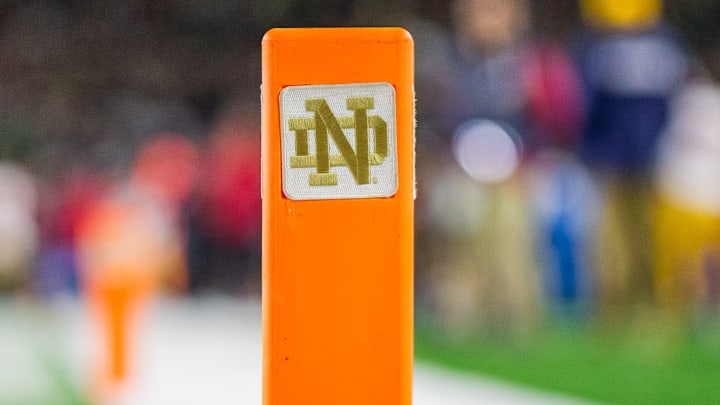One of the biggest headlines of the past few weeks in regards to Notre Dame football doesn't seem to be getting anywhere near enough attention. The Fighting Irish and every other power conference school in the country are about to see a pretty massive shift in how they deal with college athletes. That is if a settlement in House v. NCAA is really as close as analysts are beginning to claim.
A big part of the settlement, a massive court case that could bring down the NCAA entirely if it doesn't get settled, is how Notre Dame and the rest of the schools involved would handle revenue sharing. It's no surprise that revenue sharing would be a massive financial outlay. Just how massive the hit for the NIL alternative is, almost certainly raises eyebrows around college football especially.
A new report from Ross Dellenger of Yahoo! Sports details how much money Notre Dame football and other programs can expect to see get paid out over the next decade. Dellenger claims sources told him major programs expect to take a $300 million hit over 10 years.
With a staggering $30 million annual loss, the financial implications are undeniably significant. This means that Notre Dame football will need to adopt innovative strategies to cope with such a substantial reduction in their yearly budget.
Keep in mind that before Notre Dame football got its new deal with NBC, it was only making $22 million per year. Obviously, being one of the most globally recognizable programs in the world, the TV deal wasn't everything. But it was a lot of its revenue.
The new deal with NBC is expected to be quite a bit more lucrative with a reported $50 million annually. Notre Dame also gets around $17 million a year from the ACC thanks to its alliance in almost every sport besides football (hockey is in the Big Ten).
That still means that Notre Dame is spending frighteningly close to half its $67 million pot of broadcasting rights on revenue sharing every year.
Should the settlement come to pass in the way that analysts believe, it's going to be a brave new world. One has to wonder if the deal, likely meant to save the NCAA, might eventually destroy it anyway. Could the "Super Conference" long talked about finally be born out it?
It seems like a possibility, even if it's not exactly the format that's been floating around the web. And Notre Dame football backers better prepare themselves. Because this new structure doesn't offer a lot of ability to stay independent.
